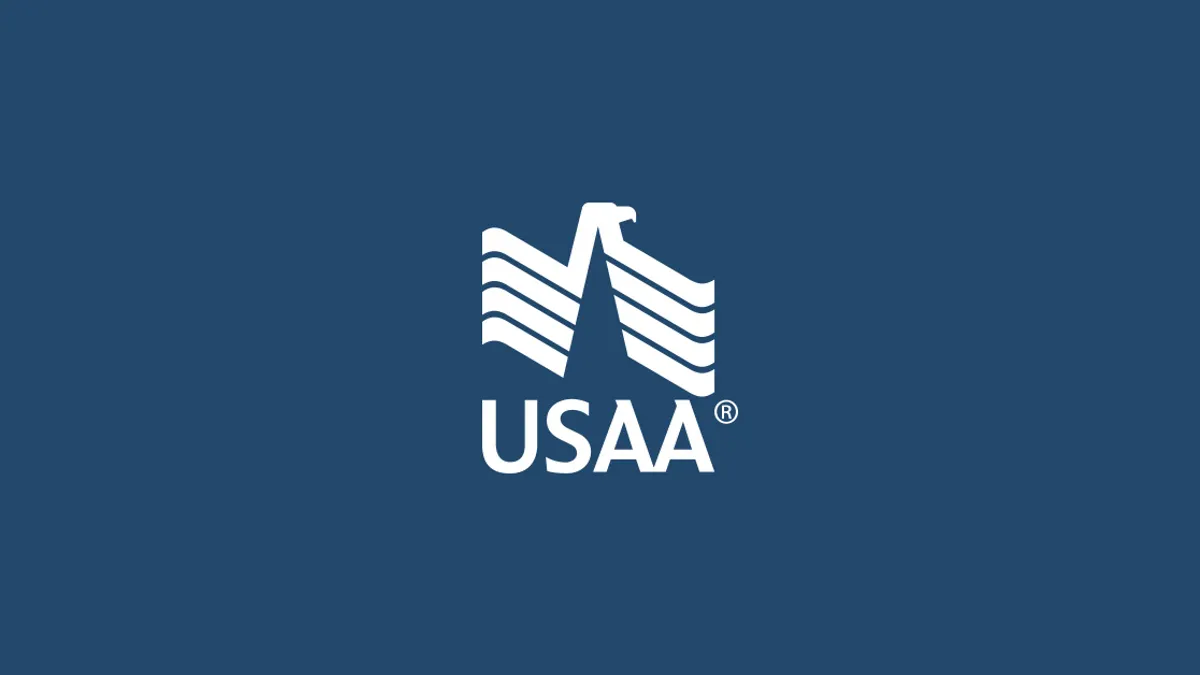Dive Brief:
- San Antonio-based USAA sued Truist last week, claiming the Charlotte, North Carolina-based bank is infringing on three patents related to mobile deposit capture technology.
- The U.S. District Court for the Eastern District of Texas, where the suit was filed, is the same court that has found in favor of USAA in three previous patent-infringement cases since 2018 — each offering a nine-figure judgment.
- USAA sent letters to 100 banks in 2017, warning them they were violating the insurer’s mobile deposit patents. “Truist was on notice and, on information and belief, had actual knowledge of its infringement of the USAA Patents before the filing of the Complaint, including because the USAA Patents are publicly known and have been widely publicized in the banking industry, including in major publications read by Truist employees and specifically referring to Truist,” according to the complaint USAA filed Friday.
Dive Insight:
Truist is the third among the nation’s seven largest banks to be sued by USAA over alleged mobile deposit patent infringement. Wells Fargo was ordered to pay USAA $200 million in damages, then another $102.8 million, in November 2019 and January 2020 after the military-focused insurer sued the San Francisco-based bank twice in 2018.
PNC was ordered to pay USAA $218.5 million in May. The Pittsburgh-based bank has asked a judge in the Eastern District of Texas to throw out that verdict, according to Reuters.
USAA and Truist both declined to comment to the wire service Monday regarding the suit. Truist in April, however, joined the Open Invention Network, a group founded to “build patent non-aggression” by encouraging the use of shared software licensing and open source software. Other members include TD and Block, once known as Square.
USAA’s legal actions center on technology developed by software company Mitek Systems and used by about 6,500 financial institutions, which would have to negotiate with USAA to pay additional licensing fees for their mobile deposit technology.
Mitek and USAA began collaborating in the early 2000s on remote deposit capture technology that would let customers — specifically, service members stationed in far-flung outposts — deposit checks using their phones. Mitek and USAA, however, had a falling out, sued each other, then separately launched similar mobile deposit capture products — first Mitek in February 2008, then USAA in August 2009.
After a series of legal battles over the rights and licensing of the technology, the companies settled in 2014, and both kept their patents.
"Truist did not release Truist Mobile Deposit until years after USAA had already implemented and released its patented technology to widespread adoption, demonstrating the commercial viability of USAA's patented technology," USAA’s Friday complaint reads. "Truist has profited, and continues to profit, including by providing its infringing mobile deposit service to millions of Truist customers without USAA's permission and without any compensation to USAA, materially harming USAA and its members.”














